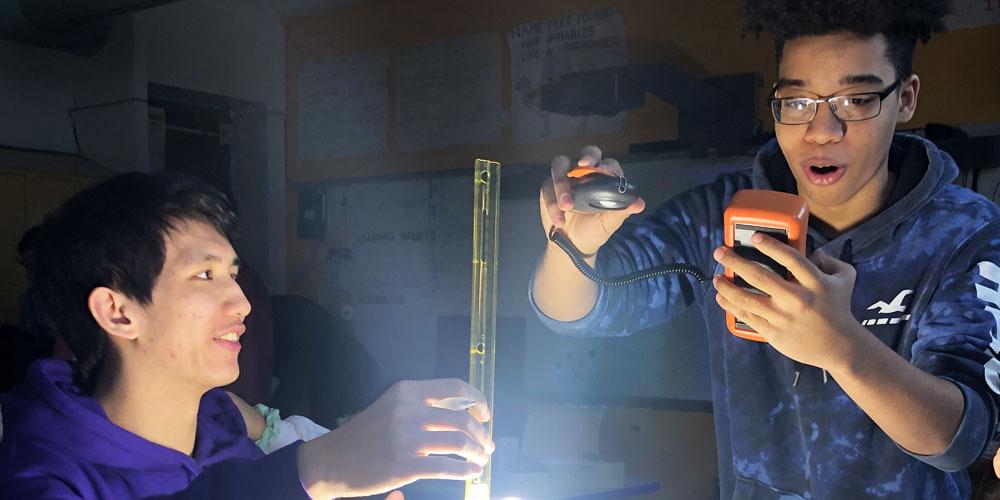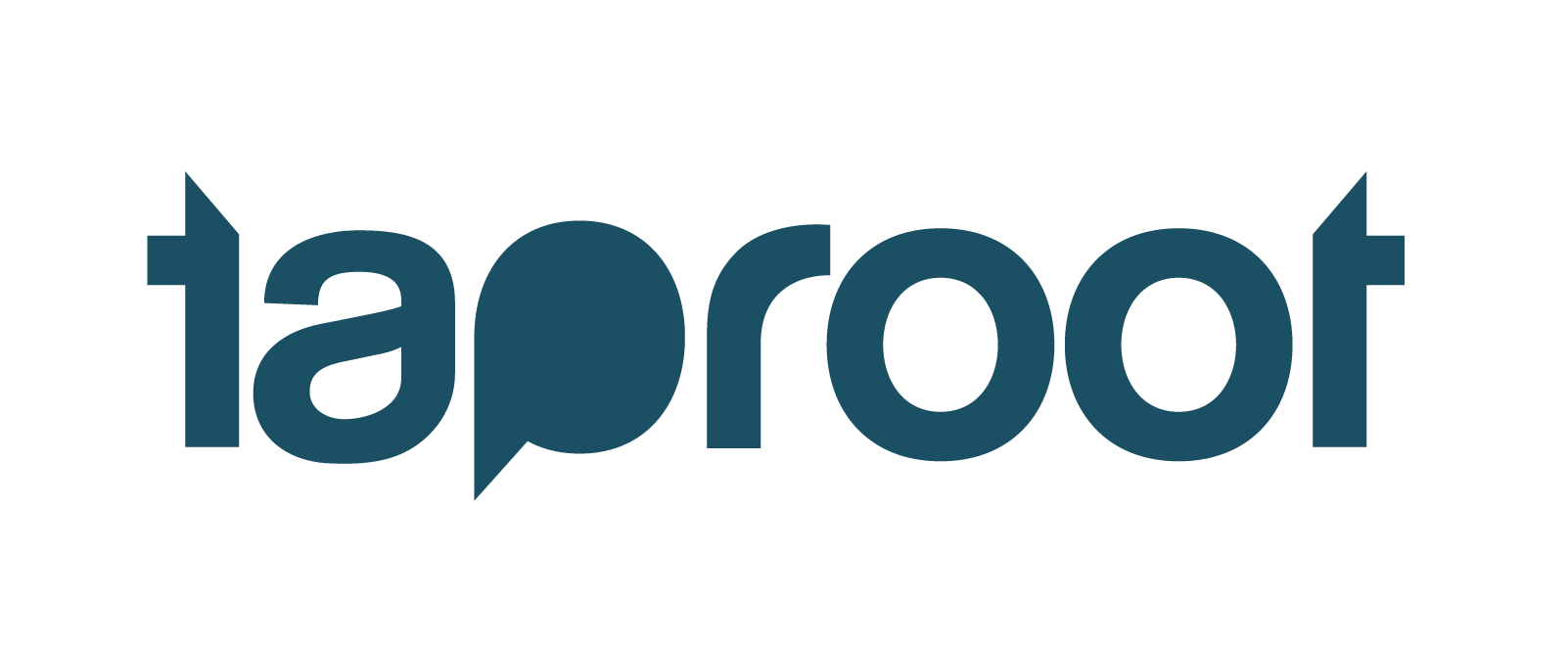Getting to Work by Going Remote: How Stacks+Joules Is Empowering Students in 2020
Stacks+Joules bridges the tech opportunity gap with a specialized curriculum that prepares their students for well-paying, meaningful jobs. Pro bono experts have played a key role in helping them grow.

As the year draws to a close, we’re highlighting some of our favorite pro bono stories of 2020. This profile is a part of our ongoing series on how workforce development organizations in particular are using this valuable resource.
The world of work is evolving, and the underserved, returning citizens, and those with barriers to employment are being left behind. Workforce development organizations make sure that people in need of jobs get the training and services they need to find careers and thrive.
In the first half of 2020 over 40 million people filed for unemployment in the U.S.—now a record-breaking number of people are reaching out to workforce development organizations for assistance. These programs use education and training to help people access jobs that pay a living wage and carry benefits. And those jobs lift families out of poverty and strengthen communities.
But where can workforce development nonprofits turn when they need additional resources to meet this increased wave of demand? Over the next few months, we’ll be featuring nonprofits at the forefront of this work who are using pro bono service to strengthen their organizations and continue building communities that work. We spoke with Jonathan Spooner, one of the two founders of Stacks+Joules, about how they’ve responded to the on-going crises in the U.S. and how their program continues to grow through the power of pro bono.
The workforce challenge they strive to meet:
Stacks+Joules bridges the tech opportunity gap with a specialized curriculum that prepares their students for well-paying, meaningful jobs. For the past four years, founders Mike Conway and Jonathan Spooner have helped students master rigorous technical skills and concepts vital to jobs in commercial energy efficiency. The program also provides on-going support for graduates with internship and job placement services and facilitates mentorship opportunities with established building automation professionals.
The burgeoning building automation field needs qualified employees—Stacks+Joules awards certificates in that field including lighting control, HVAC control, and overall building automation. They primarily work with people of color and women, and often train students who are still in high school. Right now, they have 60 students across four different cohorts, including one all-woman cohort with the Lower East Side Girls’ Club. “We’re trying to go to the areas where people don’t expect talent like this to come from, and really cultivate that talent pipeline,” noted Jonathan.
How pro bono has helped their work:
Stacks+Joules has a permanent staff of two, and those two staff members live on opposite sides of the country: Mike is based in Los Angeles while Jonathan lives in New York. The small and spread-out founders had technical expertise and plenty of drive but lacked the nonprofit management experience needed to continue growing on their own. Jonathan mentioned that most of his experience was in the for-profit world, and that their first pro bono project with Taproot was an important learning experience.
“I participated in a Taproot Speed Consulting event and it was humbling to say the least. I was coming in thinking, “Yeah, we’ve got one class in Boston; we’re killing it!” And these volunteers were asking questions like, “Do you have an ask for how much money you’re trying to raise?” And there I was thinking “Uh, we’re just trying to raise money. I don’t even know what that is."
Pro bono experts helped their team learn more about what their growth arc could look like, the kinds of questions they could be asking, and opportunities they should look out for. “It really helped me pull away a lot of the confusion of the nonprofit world,” Jonathan recounted.
How did the pandemic change their operations?
The surge in unemployment caused by COVID-19 has been a major concern for their team in recent months, as has the racial justice movement in the U.S.
“With the employment picture what it is due to COVID, and our work to really lift up and celebrate a client base with a lot of people of color—every single day, the news cycle seems to be reinforcing our whole mission.”
The pandemic forced their team to move all programming to the virtual space like many other nonprofits—but the transition brought some unexpected benefits. “One change was kind of surprising: to a certain degree, the switch to all-virtual programming actually worked in our favor. I’d been the teacher for all four cohorts for a year–but with the move to virtual teaching, then all of a sudden Mike was able to join and really take over the teaching component,” Jonathan explained. The transition to virtual program delivery was of course a challenge, but it also allowed both founders to lean into their personal strengths in a way that ultimately benefitted their programs.
Often, the tasks that students learn at Stacks+Joules require them to connect remotely to different kinds of machinery—holding class virtually didn’t hinder that process, it reinforced the importance of precision in remote work. “The results have actually been wonderful—the two of us were able to continue our program at full speed. It’s been absolutely amazing.”
Advice for other nonprofits interested in pro bono:
Stacks+Joules has been using pro bono for years and had some excellent tried-and-true advice to share for other nonprofits:
- Make your project needs clear but give your volunteer the freedom to make it happen. Their team experimented with posting step-by-step, fully planned tasks on Taproot as well as looser descriptions of their needs and timeframe. Overwhelmingly, projects that invited creativity with a simple goals-oriented approach garnered more applications and were more exciting for volunteers to work on.
“Volunteers want to have their thumbprint on it. Why are they doing this? Not because they just want to do work, but because they want to have an impact. And this expert doesn’t have the time to quit their job and launch a nonprofit. Instead, they’re going to do it in this kind of bite-size manner.”
- Connect with your volunteers by focusing on your mission. Jonathan pointed out that while the skills and compatibility match is key to getting the task at hand done well, it’s the cause that really hooks a volunteer’s attention. “As a volunteer learns more and more about what you do, it just seems that they’re more and more drawn to caring about it.”
“And I think that’s the one piece of Taproot that really has the magic to it: sure, everybody has their list of skills and they can do, but when it comes to it, volunteers are excited about what you do and who you help–tell them about your mission and they’re instantly interested.”
- If you connect with volunteers well pro bono can even expand your network. Pro bono is first and foremost a method of handling specific challenges, but it’s not uncommon for volunteers to stay connected with nonprofits after a project has wrapped. Jonathan described several examples of volunteers from graphic designers to marketing professionals who continued to reach out and stay involved long after their initial project was complete. “When I ask myself “How are we using Taproot?” I realize, oh yeah, Taproot is how we connected with all these long-time volunteers and supporters.”
Looking ahead for Stacks+Joules:
The future is hard to predict in a time of multiple crises, but their team remains hopeful, nimble, and devoted to empowering students and connecting them with careers. “This has been such a dash of just trying to figure out what to do; trying every door and trying every lock. It’s not a set plan where we say, “First we do this and then we do this.” It’s, “Okay we do this” and then, “Woah, wait a minute,” and then everything changes.” Their team plans to continue working with skilled volunteers who can help them plan, pivot, and repeat during this time of seemingly constant change.
Pro bono continues to be an important part of Stacks+Joules’ work, directly through specific engagements and indirectly through their widening network of volunteers-turned-advocates. “Taproot has always had this unbelievable vector of really passionate, really helpful people who just have gone on to be bigger and bigger parts of our nonprofit’s work.”
Interested in getting pro bono support for your organization? Sign up on Taproot Plus to start connecting with skilled marketing, tech, and strategy volunteers.
Want to learn more about how pro bono can complement workforce development? Download our project guide for insights and inspiration to help you kick off your next project!

